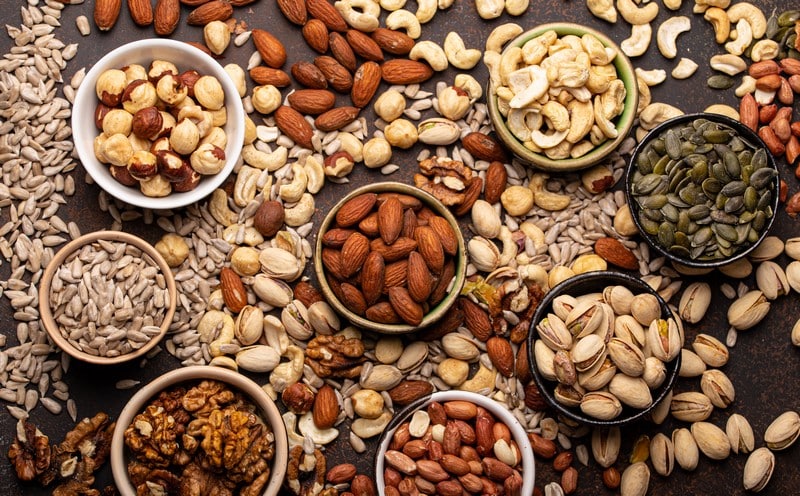Seeds and Nuts

Decreased inflammation, oxidative stress, enhanced insulin sensitivity, and a reduced risk of acquiring fatty liver have all been linked to a nut-rich diet, including walnuts and almonds. Moreover, walnuts have been shown to enhance liver function tests in persons with fatty liver disease. They are rich in omega-3 fatty acids, antioxidants, and dietary fiber. The daily recommended amount is ten walnuts.
Sunflower seeds are a natural way to enhance vitamin E intake, manage liver pain and help prevent liver damage. Although most studies on vitamin E and fatty liver have focused on supplementation, a 100-gram dose of sunflower seeds provides more than 100 percent of the DV with around 20 milligrams of vitamin E.
Furthermore, eliminating unhealthy fat and oil from the diet and replacing them with healthy, unsaturated oils is excellent for weight loss and decreasing levels of liver enzymes. Flaxseed oil is an example of an unsaturated fat rich in omega-3 fatty acids. In addition, the detoxification properties of papaya seeds can also serve as a home remedy. Patients can both consume the fruit or extract it to make juice. However, consuming moderate amounts of nuts and seeds is recommended to avoid weight gain.










